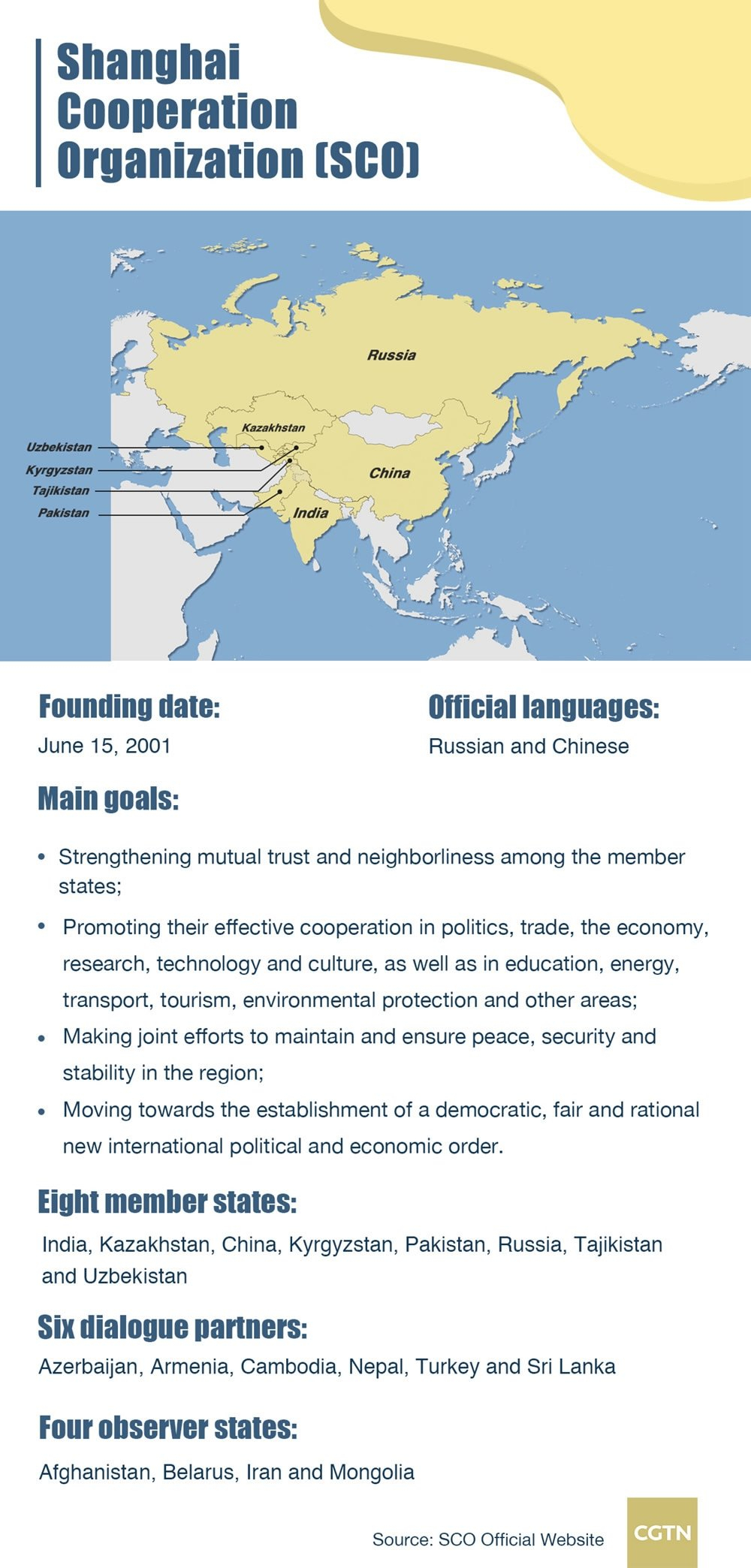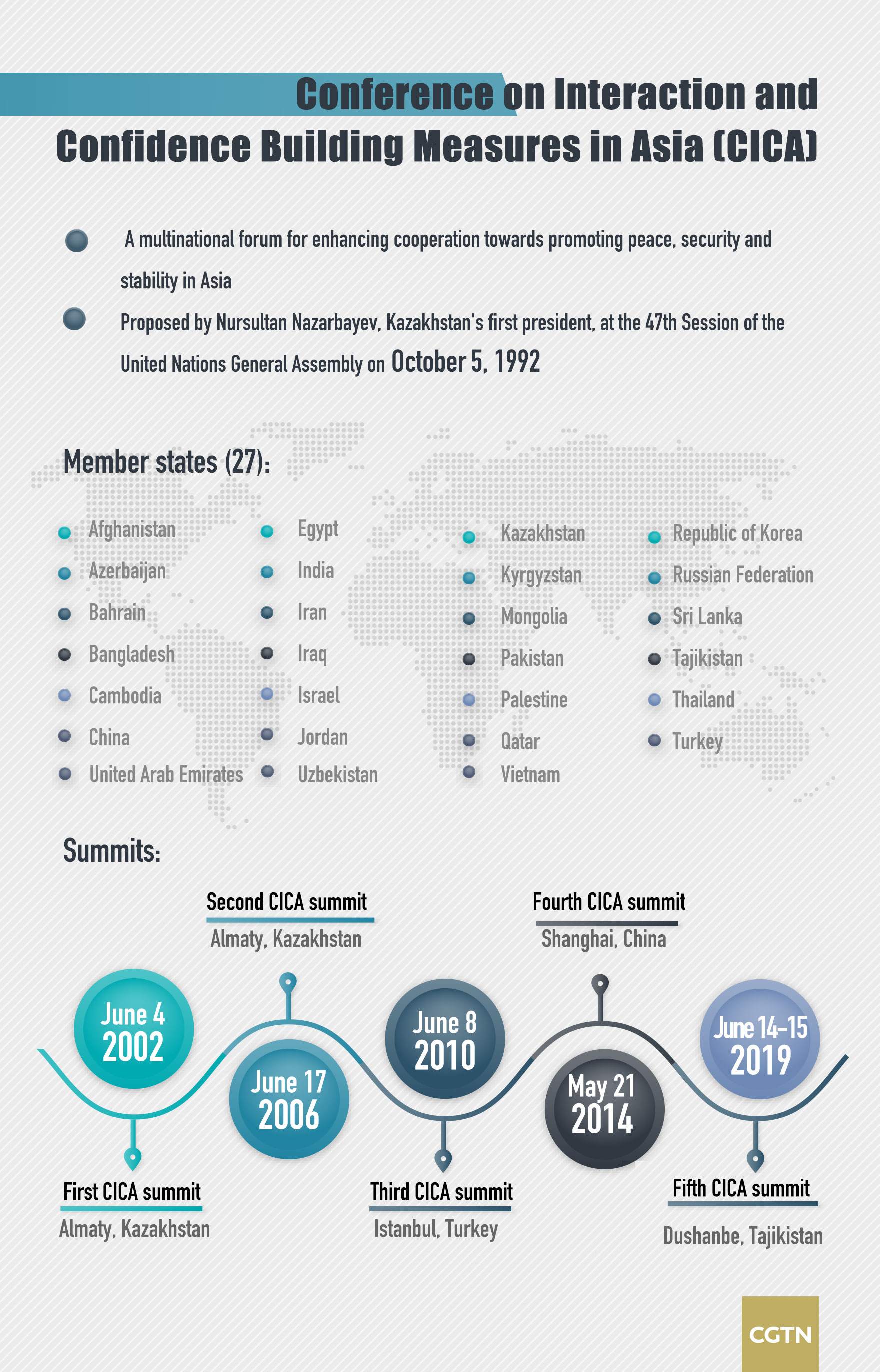03:21
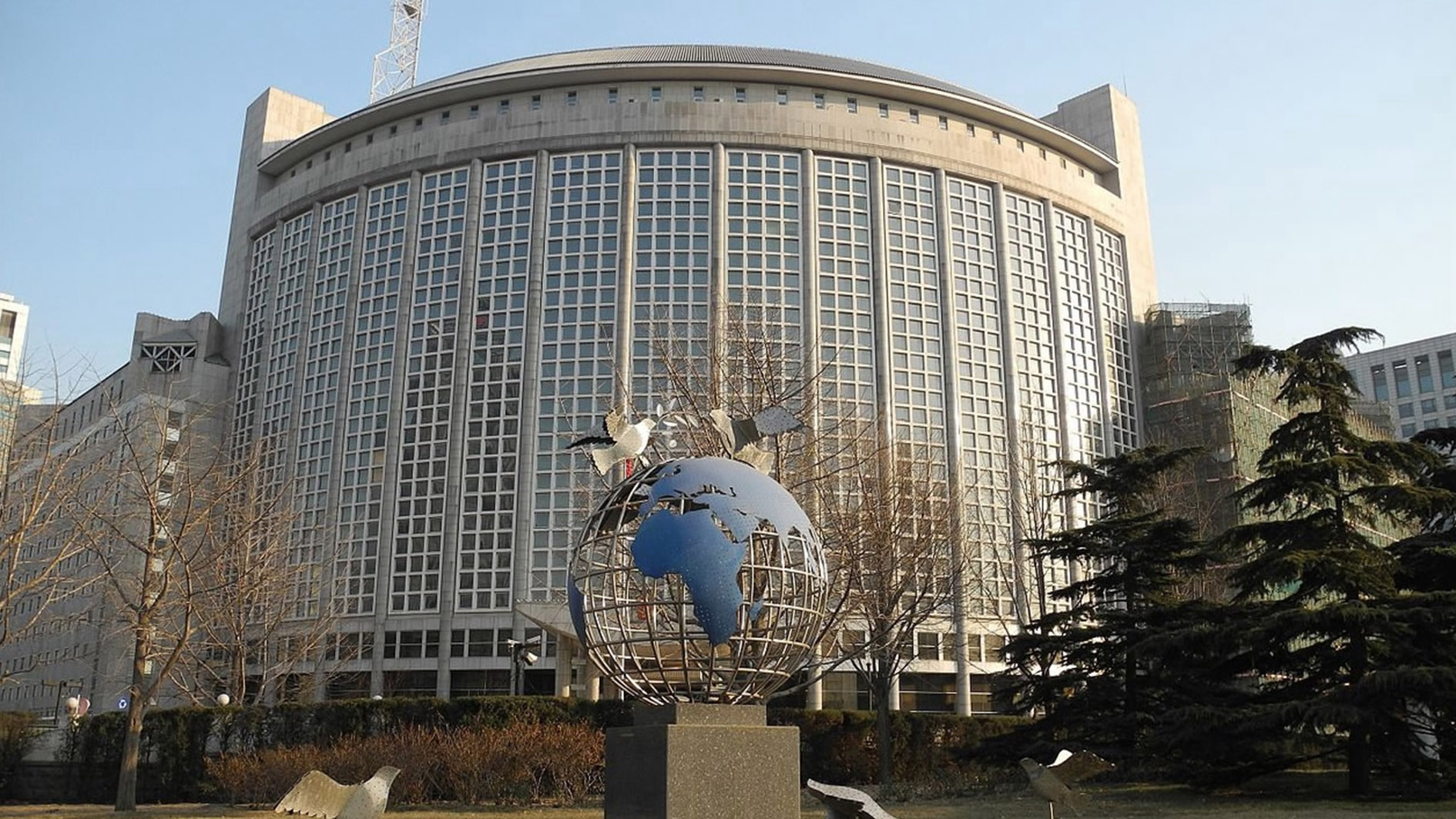
President Xi Jinping's upcoming visits to Kyrgyzstan and Tajikistan will open a broader prospect for the development of diplomatic ties.
China's Vice Minister of Foreign Affairs Zhang Hanhui made the remark on Monday while briefing media on Xi's visits.
The ministry on Sunday announced that Xi will pay a state visit to Kyrgyzstan from June 12 to 14 and attend the 19th meeting of the Council of Heads of State of the Shanghai Cooperation Organization (SCO) in Bishkek.
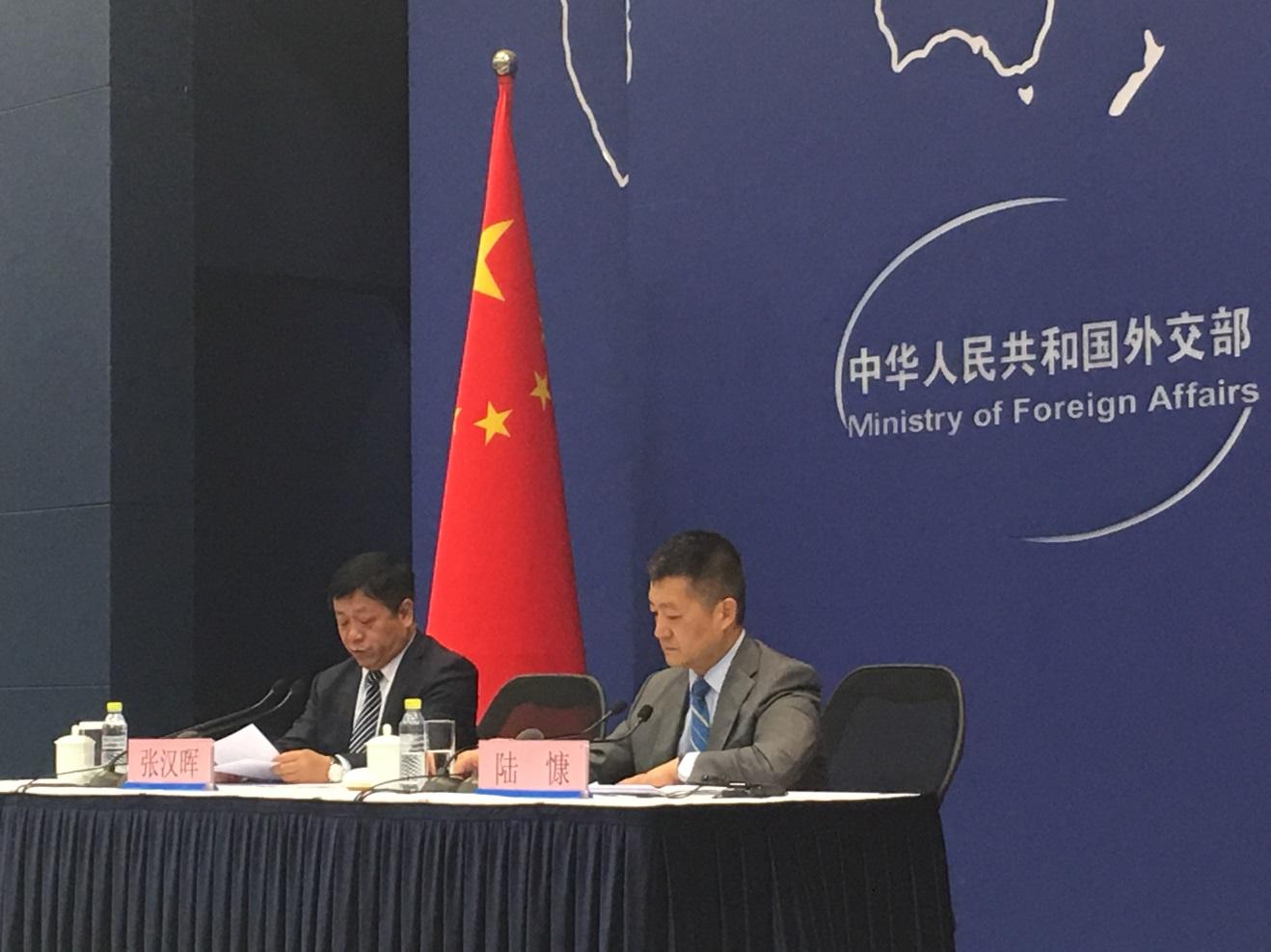
Chinese Vice Minister of Foreign Affairs Zhang Hanhui (L) and Chinese Foreign Ministry spokesperson Lu Kang at the press conference in Beijing, China, June 10, 2019. /CGTN Photo
Chinese Vice Minister of Foreign Affairs Zhang Hanhui (L) and Chinese Foreign Ministry spokesperson Lu Kang at the press conference in Beijing, China, June 10, 2019. /CGTN Photo
Xi will also attend the 5th summit of the Conference on Interaction and Confidence Building Measures in Asia (CICA) in Dushanbe, the capital city of Tajikistan, and pay a state visit to the country from June 14 to 16.
Relationship with Kyrgyzstan, Tajikistan at their best
China's relations with Kyrgyzstan and Tajikistan are at their best in history with broad development prospects, Zhang noted during the press conference.
This is President Xi's second visit to both countries after his trip to Kyrgyzstan six years ago and Tajikistan five years ago.
Noting that the international situation is undergoing profound changes, with rising unilateralism seriously impacting the basic norms governing international relations, recurrent regional hot-spot issues and serious terrorism, the official said China maintains good and healthy relations with Central Asian countries including Kyrgyzstan and Tajikistan.
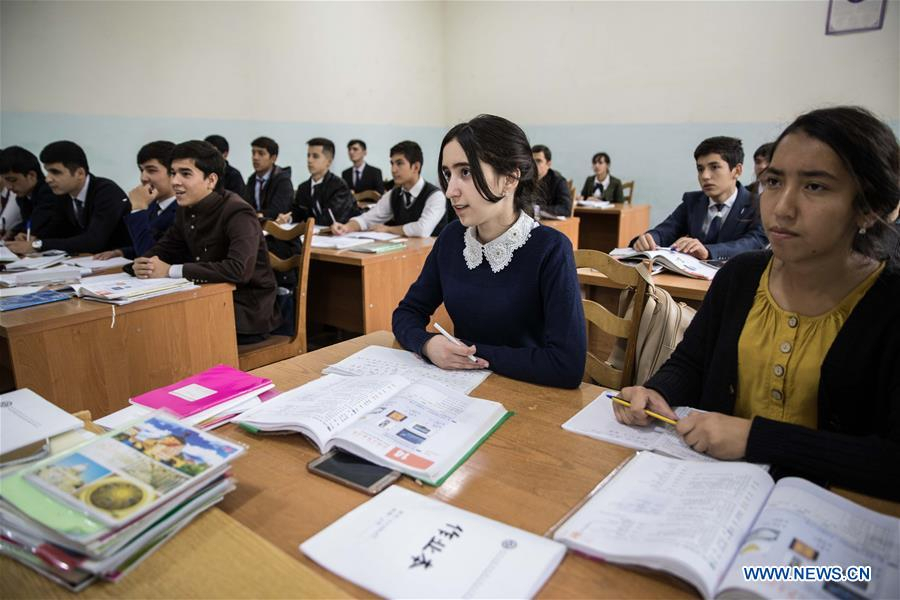
Students take a Chinese language lesson at the Confucius Institute of the Tajik National University for Nationalities in Dushanbe, Tajikistan, October 10, 2018. /Xinhua Photo
Students take a Chinese language lesson at the Confucius Institute of the Tajik National University for Nationalities in Dushanbe, Tajikistan, October 10, 2018. /Xinhua Photo
Based on sound mutual trust and political foundation, bilateral cooperation in areas of law enforcement, security and economy between China and Kyrgyzstan and China and Tajikistan have developed swiftly, leading to positive contributions to regional peace and stability.
Zhang also noted that during the visits, China, along with Kyrgyzstan and Tajikistan, will draw up a new blueprint for cooperation under the Belt and Road Initiative and deepen economic partnerships and people-to-people exchanges.
Highlights of President Xi's visit
Vice Foreign Minister Zhang Hanhui said abundant events are to be expected that count among the highlights of the visit.
He said President of Kyrgyzstan and President of Tajikistan have attended the Second Belt and Road Forum for International Cooperation (BRF) this April in Beijing.
President Xi already had separate meetings with the two presidents, during the Beijing forum, and in just more than a month, during his upcoming visits to Kyrgyzstan and Tajikistan, President Xi will meet with the two presidents again to have an in-depth discussion on bilateral ties and cooperation in various fields and point the way forward.
This reflects the presidents of the three countries have a very strong personal friendship and working relationship, Zhang added.
When it comes to outcome documents during his visits, Zhang noted President Xi Jinping will sign documents with his counterparts, which will make new plans for the future growth of bilateral cooperation, and dozens of government-to-government documents will also be signed which will provide new impetus to the development of bilateral ties and cooperation.
Injecting vigor to the SCO and CICA
A series of formal and informal meetings, activities and bilateral discussions will be held, with dozens of agreements expected to be signed and declarations to be announced, Zhang said at the media briefing, adding that Xi's visits will "inject vigor to the cooperation between the SCO and CICA."
He pointed out the SCO and CICA are different in their development goals, tasks, and scope.
Stressing the SCO is an international organization and CICA is a forum, Zhang said the SCO in its 18 years of development has been committed to the Shanghai Spirit and has become a model for a new form of international relations featuring mutual respect, fairness, justice, and win-win cooperation.
Since the SCO Qingdao summit in June last year, member states of the organization have conscientiously implemented the results of the summit, promoted efforts to build a community with a shared future for mankind and made use of untapped potential in diverse cooperation areas, he added.
Zhang also noted that the upcoming SCO summit will focus on security and development.
Meanwhile, the CICA is a forum aimed at strengthening cooperation for peace, security, and stability in Asia, which was proposed by first Kazakh President Nursultan Nazarbayev, he pointed out.
When holding the chair of the CICA from May 2014 until 2018, China has fulfilled its responsibility and hopes to see CICA play a bigger role in regional security, Zhang said.
He added China will take the initiative to focus on regional development, continue to practice a common, comprehensive, cooperative and sustainable security concept, and promote in-depth cooperation on confidence measures in all areas of cooperation among CICA member states.
When asked if President Xi would meet Indian Prime Minister Narendra Modi, and if China-U.S. trade war would be a topic of discussion, the vice minister said related arrangements and activities are still under consultation.
With India also facing trade problems with the U.S. recently, Zhang believed the two leaders may exchange views on trade issues and international hot-button issues.
The trade issue has recently become a hot topic in the world, and country leaders are likely to discuss unilateralism, trade protectionism, and economic bullying during the meetings, Zhang added.
Xinjiang's de-extremism policy
In response to a question about China's Xinjiang policy and its impact on people-to-people exchange with Kyrgyzstan, Zhang defended Xinjiang's de-extremism policy, saying it has effectively countered terrorism and safeguarded regional peace and stability.
In the past years, Xinjiang has suffered from terror and violent attacks that posed severe threats to people's lives and regional development, and therefore the government of Xinjiang Uygur Automomous Region had to take measures to fight against the "three evil forces" – terrorism, extremism and separatism, Zhang noted.
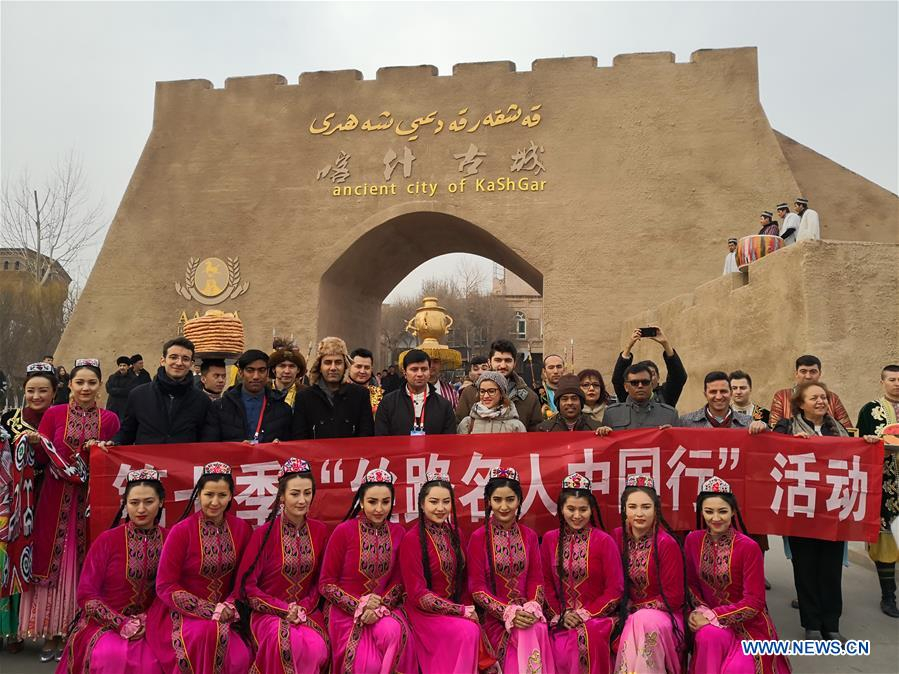
Media representatives of the Silk Road Celebrity China Tour attend a ceremony to enter the ancient city of Kashgar, northwest China's Xinjiang Uygur Autonomous Region, January 13, 2019. /Xinhua Photo
Media representatives of the Silk Road Celebrity China Tour attend a ceremony to enter the ancient city of Kashgar, northwest China's Xinjiang Uygur Autonomous Region, January 13, 2019. /Xinhua Photo
He dismissed allegations that the local government is purging Uygur people, saying such reports are totally groundless and urging certain countries to stop making such rumors and lies.
Zhang said certain people are not happy to see China's development and attack China by making rumors about Xinjiang. "These people are zombies out of the Cold War tombs and they are full of lies," Zhang said.
The vocational education and training programs in Xinjiang are part of efforts to counter terrorism and extremism, not as so-called "re-education camps," he stressed. China urges certain countries to stop making such lies and avoid a Cold War mentality, he added.
Agricultural cooperation with Central Asia
In response to a question about whether China would import more from Central Asia as an alternative to U.S. agricultural products, Zhang said China and Central Asian countries have discussed details on agricultural imports, and China will import more products from these countries.
China and Central Asian countries have expanded cooperation in all areas, especially agricultural and livestock cooperation, Zhang noted. Both sides value each other's market and have discussed relevant details to facilitate agricultural imports, Zhang said.
China will import more wheat, soybeans, poultry, dairy products and fruits from these countries, he added.
(CGTN's Su Yuting also contributed to the story)




